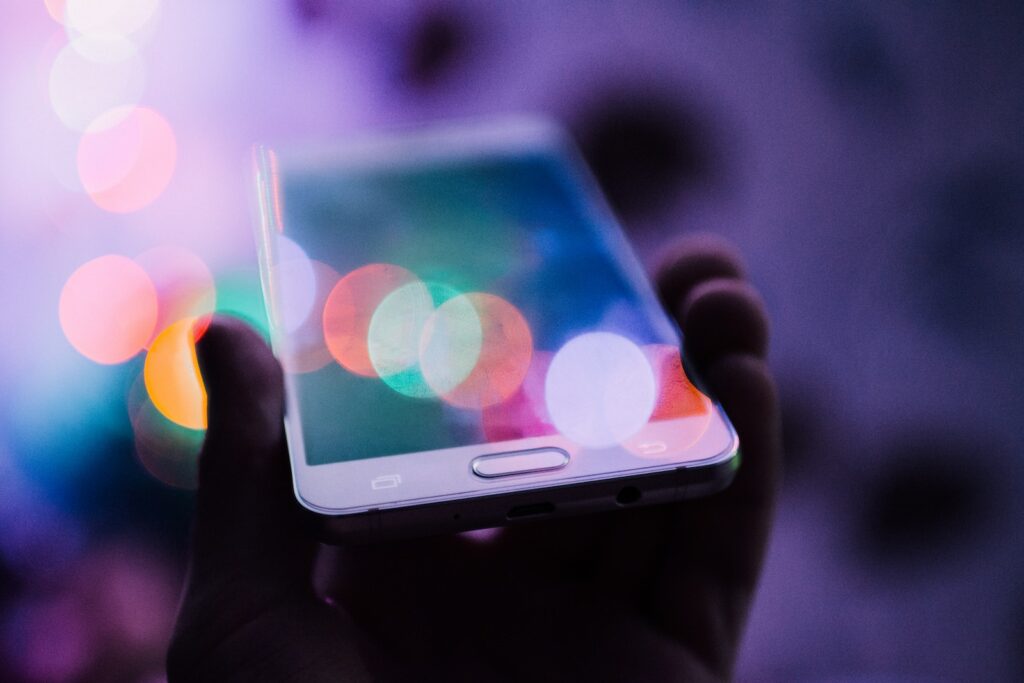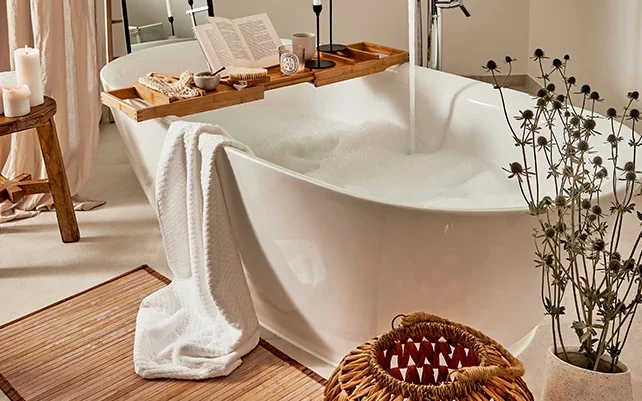Easy Steps to Detox Your Digital Life & Balance Your Relationship with Technology

Are you glued to your phone? You need to start to detox your digital life and take a hard look at your relationship with technology. Technology has become an integral part of our lives and keeping a more balanced relationship with technology is a tall order. We use it for work, communication, entertainment, cooking, travel and relationships, in effect technology is at the heart of our daily routines. Excessive use of technology can have a negative impact on our mental and physical health, leading to increased stress, anxiety, and even addiction. This is why it’s essential to detox your digital life and maintain a more balanced relationship with technology.
According to a recent study conducted by the Pew Research Center, 28% of American adults say they are almost constantly online, while 45% say they go online several times a day. This constant use of technology can lead to a phenomenon called “technostress,” which can result in sleep disturbances, fatigue, and irritability.
One of the ways to detox your digital life is to set boundaries around your use of technology. This can include turning off notifications, setting limits on social media usage, and avoiding the use of technology before bedtime. By doing so, you can reduce the amount of time you spend online, and allow yourself to disconnect from the digital world.
Sometimes getting away from detox your digital life to engage in fun activities that you enjoy . Travelling, exercise, having fun and creating new daily routines, finding your zen , all all real solution to this challenge. According to recent studies, loneliness has become a major public health concern, with one in five adults in the United States reporting feelings of loneliness or social anxiety. Loneliness can lead to a range of health problems, including depression, anxiety, and even heart disease.
Maintaining a more balanced relationship with technology is becoming more difficult but setting boundaries around your use of technology and engaging in activities that are fun and make you feel that you are good enough, can reduce the negative impact of excessive technology use on your mental and physical health.

Mindful living: creating a more balanced relationship with technology in the digital age of communication
Mindful living in the digital age is essential to maintaining a healthy relationship with technology. Being mindful means being present in the moment, and not allowing your mind to wander to past or future worries. In the digital age, being mindful means being intentional with your technology use and not allowing it to distract you from the present moment.
One way to practice mindful living in the digital age is to limit your use of social media. According to a recent study, people who spent more than two hours a day on social media had higher rates of anxiety, depression, and loneliness. By limiting your social media use, you can reduce these negative effects and focus on building real-life connections.
Another way to practice mindful living in the digital age is to be intentional with your technology use. Instead of mindlessly scrolling through your phone, set a specific time each day to check your email or social media. This can help you avoid becoming overwhelmed by technology and allow you to focus on other aspects of your life.
Your self-perception can also be affected by your use of technology. Social media has been linked to increased levels of comparison, leading to feelings of inadequacy and low self-esteem. By being mindful of your social media use and avoiding comparisons, you can focus on your own journey and feel more confident in yourself.
Mindful living in the digital age is crucial to maintaining a healthy relationship with technology and improving your self-perception. By limiting your social media use, being intentional with your technology use, and avoiding comparisons, you can improve your mental and emotional well-being and lead a more balanced life.

Digital detox: how to reduce technostress and balance your relationship with technology
Technostress is a term used to describe the negative impact that technology can have on our mental and physical health. This stress can be caused by a variety of factors, such as information overload, constant connectivity, and the pressure to keep up with the latest technology trends.
Reducing technostress, which is the latest term used for mental stress related to technology use, is crucial to maintaining a healthy relationship with technology. Excessive physiological and emotional arousal caused by technostress can lead to a range of negative health outcomes, including burnout, fatigue, and even physical health problems such as headaches and eye strain.
One way to reduce technostress is to set boundaries around your use of technology. This can include taking regular breaks from technology, turning off notifications, and limiting your use of social media. By setting these boundaries, you can give yourself time to disconnect and recharge, reducing the physiological and emotional arousal caused by constant technology use.
Another way to reduce technostress is to prioritize self-care activities. Regular exercise, meditation, and spending time with loved ones are all activities that can help reduce stress and promote well-being. These activities can also help you feel more connected to the present moment and less overwhelmed by the constant stream of information and stimuli that technology provides.

It’s also important to be mindful of the types of technology you use and how you use them. For example, using blue light filters on your phone or computer can help reduce eye strain and headaches, while using productivity tools such as time management apps can help you stay organized and reduce feelings of overwhelm.
In addition, it’s important to be aware of the potential negative effects of social media use on mental health, such as increased levels of comparison, which can lead to feelings of inadequacy and low self-esteem. By being mindful of your social media use and avoiding comparisons, you can reduce the emotional arousal caused by social media and improve your mental well-being.
Reducing technostress is crucial to maintaining a healthy relationship with technology and making better life choices. By setting boundaries around technology use, prioritizing self-care activities, and being mindful of the types of technology you use and how you use them and for how long, you can reduce the physiological and emotional arousal caused by technology use and improve your mental and physical health.
One of the main causes of technostress is information overload. With so much information available at our fingertips, it can be overwhelming to sift through and process all of it. This can lead to feelings of anxiety, confusion, and a general sense of being overloaded.
Another cause of technostress is the pressure to constantly stay connected. In today’s society, it’s become the norm to be reachable at all times, which can lead to feelings of pressure and anxiety. This constant connectivity can also make it difficult to create a space where you can disconnect and relax.
The pressure to keep up with the latest technology trends can also contribute to technostress. With new technology being introduced at a rapid pace, it can be difficult to keep up and learn how to use new tools effectively. This pressure can lead to feelings of inadequacy and frustration.
To combat technostress, it’s important to set boundaries around your use of technology. This can include taking breaks from technology, turning off notifications, and limiting your use of social media. It’s also important to prioritize self-care activities, such as exercise, meditation, and spending time with loved ones, to help reduce stress and promote well-being.
Technostress is a real and pressing issue in the digital age. Being mindful of your technology use and setting boundaries around it, can reduce the negative impact of technostress on your mental and physical health.

Are you victim of technostress? How to manage your digital life and wellbeing
Are you glued to your phone or constantly following new technology developments? You might be one of the millions of the technostress victims. The constant need to check your phones or stay up-to-date with the latest technology trends can lead to feelings of anxiety, overwhelm, and even addiction.
Those who are glued to their phones may struggle to disconnect from technology and often experience feelings of FOMO (fear of missing out) if they’re not constantly connected. This can lead to a constant need to check notifications, emails, and social media, which can contribute to feelings of overwhelm and stress.
Similarly, those who are constantly following new technology developments may feel pressure to stay up-to-date with the latest trends and tools. This can lead to a constant stream of information and stimuli, which can contribute to feelings of information overload and burnout.
Being a victim of technostress can also lead to physical health problems such as eye strain, headaches, and disrupted sleep patterns. In extreme cases, it can even lead to more serious mental health problems such as anxiety and depression.
To reduce the negative impact of technostress, it’s important to be mindful of your technology use and set boundaries around it. This can include taking regular breaks from technology, turning off notifications, and limiting your use of social media. It’s also important to prioritize self-care activities such as exercise, meditation, and spending time with loved ones to help reduce stress and promote well-being.
By being mindful of your technology use and setting boundaries around it, you can reduce the negative impact of technostress and maintain a healthy relationship with technology.





